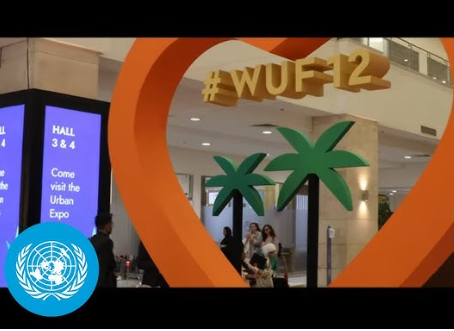12th Session of the World Urban Forum (WUF12)
The 12th session of the World Urban Forum (WUF12) occurred in Cairo from 4–8 November 2024. This event gathered 37,000 delegates to discuss pressing urban issues in Africa. The continent faces rapid urbanisation, with its population expected to grow by 2050. Key topics included affordable housing, climate resilience, and sustainable urban development.
Urbanisation Trends in Africa
Africa is the world’s least urbanised continent. Urbanisation rates have surged from 36% in 2010 to a projected 50% by 2030. By 2050, this figure may reach 60%. Currently, three megacities exist – Cairo, Kinshasa, and Lagos. By 2050, an additional seven cities are expected to join this list. Urban solutions are critical as slum populations increase.
Housing and Informal Settlements
Housing remains an important challenge. The growth of informal settlements is alarming. These areas often lack basic services and are vulnerable to climate impacts. Urban planning is essential to prevent the proliferation of slums in hazardous locations. Effective housing strategies must be prioritised to ensure safety and accessibility.
Climate Change and Urban Vulnerability
Africa’s cities are hotspots for climate vulnerability. Extreme weather events disrupt livelihoods, particularly in impoverished communities. Rising temperatures, floods, and droughts pose severe risks. Women are disproportionately affected by these climate challenges. Policymakers must address these vulnerabilities to improve urban resilience.
Economic Implications of Urban Growth
Urbanisation drives economic growth in Africa. By 2035, the largest cities will house 21% of the continent’s population. However, climate risks threaten this growth. Rising sea levels and extreme weather can undermine economic sectors crucial to urban life. Sustainable urban planning is vital for future prosperity.
Collaborative Solutions for Urban Challenges
WUF12 emphasised the importance of collaboration among stakeholders. Development partners must work together to create innovative financing models. Local solutions are necessary to address the unique challenges of African cities. Engaging communities in decision-making processes enhances urban governance.
The Role of the World Urban Forum
Established in 2001, WUF examines rapid urbanisation impacts. The forum aims to encourage sustainable urban development. It has been held biennially since its inception. This year’s event brought into light Africa’s specific urban challenges. The outcomes signal a growing recognition of the need for inclusive solutions.
Future Urban Projections
By 2042, Africa’s urban population may exceed one billion. Cities like Abidjan and Ouagadougou are projected to reach megacity status. Comprehensive urban planning is crucial to accommodate this growth. Without proper infrastructure, inequality will continue to rise. This overview of WUF12 illustrates the pressing urban issues facing Africa. The forum provided a platform for dialogue and innovative solutions. Addressing these challenges requires concerted efforts from all sectors.
Important Facts for Exams:
- WUF12: The 12th session of the World Urban Forum took place in Cairo. It gathered 37,000 delegates to discuss urban challenges in Africa. The event brought into light pressing issues.
- Megacities: Africa currently has three megacities. By 2050, seven more cities are expected to join this category. Each of these cities will have over 10 million residents.
- Climate Vulnerability: Africa’s cities are particularly vulnerable to climate change. Extreme weather events disrupt livelihoods. Women face disproportionate impacts from these climate challenges affecting urban resilience.
- Urbanisation Rates: Africa is the least urbanised continent. Urbanisation rates increased from 36 per cent in 2010 to 50 per cent projected by 2030. This trend marks the urgency for sustainable solutions.
Month: Current Affairs - November, 2024
Category: Important Days & Events Current Affairs


